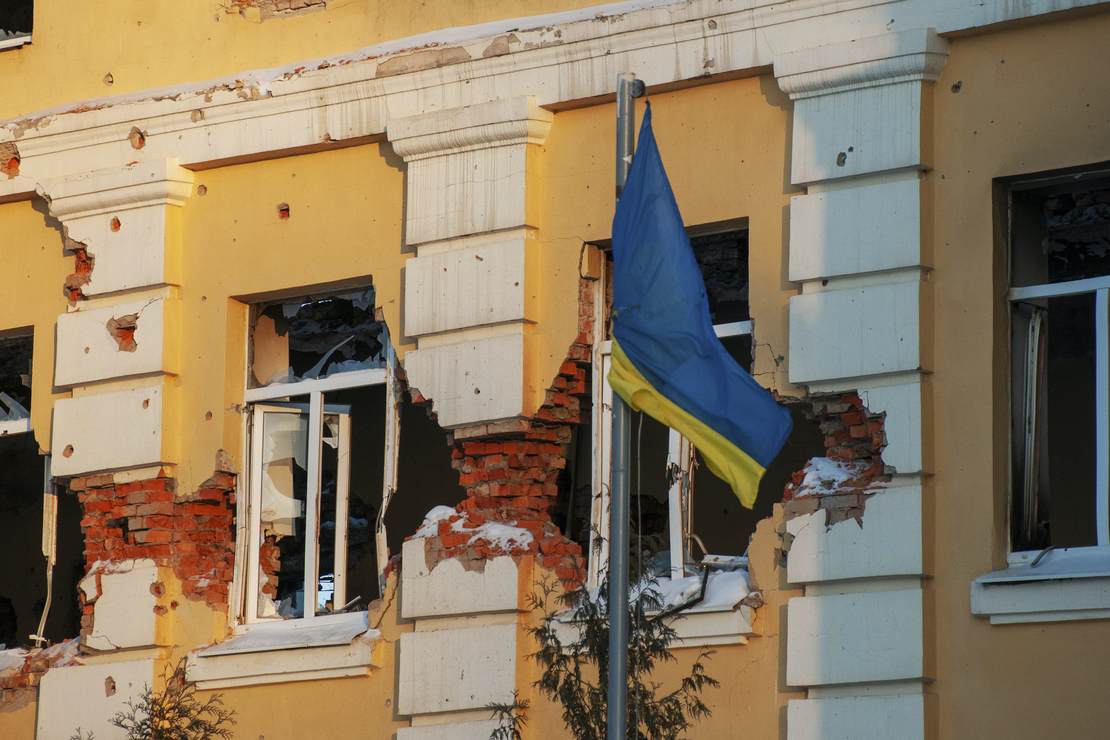
Is this a tactical redeployment of forces to bolster an alternate line of attack? Or has the Russian army suffered a humiliating repetition of its defeat in northern Ukraine? In the face of a sustained counteroffensive by Ukrainian forces, analysts now say that Russia is withdrawing from their positions around Kharkiv, the second-largest city in Ukraine.
That may be bad news for Izium, but only if Russia can redeploy those units at all:
Moscow appears to be withdrawing forces from around Kharkiv, Ukraine’s second-largest city, where it has been losing ground, Ukrainian and Western officials say, in one of Russia’s biggest setbacks since its retreat from Kyiv last month.
Officials say the Kremlin will probably redirect troops to the southeast, where it is said to be bolstering its forces in Izium, a city it captured last month. Izium, about two hours southeast of Kharkiv, has become a crucial operations center for Russia, which is said to be making gains in the eastern Donbas region, where fighting has been relentless.
If this sounds like déjà vu, it’s because the Russians lost the battle of Kyiv in an almost identical manner. Once Ukraine mustered a competitive force against Russia, they began taking back large chunks of their own territory. And it looks as if those losses have forced Russia to rethink and narrow its strategy yet again:
“The Ukrainian counteroffensive near Kharkiv is starting to look very similar to the counteroffensive that ultimately drove Russian troops away from Kyiv and out of western Ukraine entirely, although it is too soon to tell if the Russians will make a similar decision here,” according to the latest analysis from the Institute for the Study of War, a Washington think tank.
The news out of the Kharkiv region had been bad for Russia before now, but apparently got a lot worse overnight. Ukrainian forces trapped Russian armor against the Donets River and destroyed a number of vehicles. The UK defense ministry noted that the Russians appeared desperate to stop Ukrainian momentum and attempted a risky river crossing, but without the tactics and support necessary. The result? A disaster:
Ukrainian troops fighting Vladimir Putin’s army in eastern Ukraine have destroyed a “significant” number of Russian armored vehicles during a failed attempt at a river crossing by the invading forces, the United Kingdom’s Ministry of Defense said Friday. …
“Images indicate that during the crossing of the Siverskyi Donets river west of Severodonetsk, Russia lost significant armored maneuver elements of at least one Battalion Tactical Group as well as the deployed pontoon bridging equipment,” the Ministry said in a tweet.
“Conducting river crossings in a contested environment is a highly risky maneuver and speaks to the pressure the Russian commanders are under to make progress in their operations in eastern Ukraine,” the Ministry added.
READ RELATED: Seattle teacher's union pushing to extend school mask mandates to May
But “Russian forces have failed to make any significant advances despite concentrating forces in this area after withdrawing and redeploying units from the Kyiv and Chernihiv Oblasts,” it concluded.
Forbes noted on Wednesday that if earlier reports of Ukrainian advances were accurate, then the Russians may have a real problem in the southern invasion. Cutting off Kharkiv could allow the Ukrainians to flank the Russians and start rolling them up, leaving them without any way to escape. If Ukraine has forced the Russians to redeploy, then Russia and Vladimir Putin may have seen the same thing.
That may endanger their plans for Izium as well, the Institute for the Study of War (ISW) postulates:
According to the ISW, the relative effectiveness of Russian operations in this area, along with their failure to advance from Izyum indicate that they may be abandoning the Izyum axis.
“It is unclear if Russian forces can encircle, let alone capture, Severodonetsk and Lysychansk even if they focus their efforts on that much-reduced objective. Russian offensives have bogged down every time they hit a built-up area throughout this war, and these areas are unlikely to be different,” the ISW claimed. It further outlined that the Ukrainian counteroffensive in and around Kharkiv is also forcing the Russian command to make “difficult decisions.” According to the ISW, the Ukrainian counteroffensive in Kharkiv is looking somewhat similar to the counteroffensive that ultimately forced Russian soldiers out of Kyiv as well as entire Western Ukraine.
The redeployment itself could be a major problem in terms of unit morale, already terrible among Russian forces. If indeed the units that just fled Kharkiv (assuming the reports are accurate) also include units that lost the battle of Kyiv, Russia is about to send a lot of demoralized and defeated men to join units with marginally better morale that may not be losing ground, even if they’re not gaining much at the moment. That could very well corrode what little fighting spirit the Russians have, especially when Ukraine realigns its own forces and launches a new counteroffensive, which will be inevitable now. Putting two-time losers in front of a highly motivated professional army defending its homeland is a recipe for even more disaster.
Putin should be looking for a quick settlement before he loses the rest of his army. But don’t expect Ukraine to be in the mood to cut any deals. The Ukrainska Pravda reported eight days ago that Zelensky is in no mood to settle the issue now other than by ejecting Russia entirely from Ukraine:
“If on the first day of the war we had been allowed to sign a version of the peace agreement like the one we have now, we would have done it without a second thought. But now the agreement seems too much of a compromise for our side”, a member of President Zelenskyy’s inner circle shared strictly off the record in a conversation with Ukrainska Pravda.
That was before the Russians had hit reverse outside their second-biggest war objective. A Russian collapse outside of Kharkiv will only make that resolve more firm, especially if the Ukrainians can turn the Russian flank and separate their units from their lines of communication across the Ukraine-Russia border. It’s a fish-or-cut-bait moment, but for Moscow, not Kyiv.
Source:






